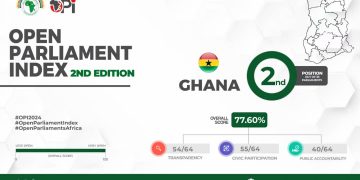SEC money fund proposals credit positive but may result in outflows
The SEC recently proposed amendments to Rule 2a-7 of the Investment Company Act of 1940 governing U.S. money market funds (MMFs) in an effort to address resiliency and liquidity concerns arising from the market volatility in March 2020 amid the pandemic fallout.
The credit implications for MMFs will depend on the final form of the regulation. Fitch Ratings believes the proposals could be incrementally credit positive and that most amendments are likely to be supported by market participants.
That said, swing pricing will face strong industry pushback over the 60-day comment period and could lead to large outflows or closure of institutional prime funds.
Proposals include the elimination of liquidity fees and redemption gates, an increase to daily and weekly minimum liquidity requirements, mandatory swing pricing for institutional prime and tax-exempt MMFs, amendments to regulatory reporting and calculation requirements and proposals for increased transparency.
We expect any rule implementation period would be sufficiently long to reduce potential market disruption, as was the case with prior enactment of MMF reform when fund managers were able to meet shareholder redemptions in an orderly fashion.
However, institutional prime and tax-exempt MMFs could see outflows or fund closures if investors or fund managers believe that swing pricing would make the funds unattractive or overly operationally complex.
The proposed removal of liquidity fees and redemption gates is viewed positively by Fitch in terms of reducing the current run risk funds face when approaching gate triggers.
Redemption gates and liquidity fees have been identified as a driver of redemptions from MMFs in March 2020, creating incentives for institutional investors to redeem prior to MMFs falling below the 30% required weekly liquid assets (WLAs).
Read: Four key predictions for African remittances in 2022
In March 2020, U.S. prime institutional MMFs experienced approximately $125 billion in redemptions, 20% of AUM, according to Crane Data. MMF’s option to impose liquidity fees and redemption gates when weekly liquid assets fall below 30% of AUM was added in the last round of 2a-7 in 2016.

The proposed increases to minimum liquidity requirements are supportive of credit, with minimum daily liquid assets (DLA) moving from 10% to 25%, and minimum WLAs moving from 30% to 50%.
Liquidity levels rose following last year’s market stress and remain elevated. However, as of November 30, 2020, three of 32 institutional prime MMFs have DLAs below the proposed higher 30% minimum threshold, and 17 of 32 funds had WLAs below the new 50% WLA proposed minimum, indicating that some funds would need to increase their liquidity levels.

However, elevated liquidity in institutional prime funds may compress excess yields relative to treasury and government MMFs, reducing investor appetite for prime funds over time. The current low-yield environment exacerbates this issue since spreads are compressed.
The implementation of swing pricing would require adjusting a fund’s net-asset value (NAV) by a swing factor equal to the estimated costs of selling a pro-rata or vertical slice of the portfolio during each net redemption pricing periods. This would likely entail significant operational complexity, which could discourage investors from buying the funds, and managers from operating them.
Swing pricing is not currently an explicit ratings factor in Fitch’s MMF criteria. Potential ratings implications will most likely depend on whether a pre-defined swing pricing framework differs from voluntary and subjective liquidity fees.
For example, if any principal erosion as a result of swing pricing is pursuant to the pre-defined terms of the fund and something that investors have accepted as part of investing in such fund, this could be considered by Fitch to be similar to MMFs which operate with floating NAVs. The MMF industry has reacted negatively to swing pricing in comments to initial regulatory proposals in the U.S. and Europe.








